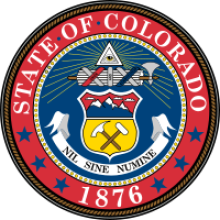
One year ago, a wave started in Colorado as voters in a handful of communities chose to reclaim the local telecommunications authority revoked by CenturyLink lobbyists in 2005. This year, the wave is even bigger.
Colorado Communities Want the Choice
As 2015 election day approaches, voters in 43 Colorado communities are on track to keep the momentum going across the state. A total of 17 counties, 26 towns, and at least 3 school districts are taking the issue to voters, reports the Colorado Municipal League. Referendums to opt out of restrictive SB 152 will take place across the state, much to the chagrin of big ISPs who spent millions in lobbying dollars to get the bill passed.
Local Support: “Yes” in Steamboat Springs
Letters include one from resident Jon Quinn and another from Jim Clark, the CEO of the Steamboat Springs Chamber Resort Association. Clark says voting to opt out of SB 152 means recognizing that it has not served its originally stated purpose to help communities:
Ten years ago, Senate Bill 152 was passed, taking away the rights of governments to engage in providing service, including their ability to partner with private entities. The argument at the time was that this would encourage private providers to invest in expanding service, in particular, to rural areas. Unfortunately, that hasn’t worked out so well. Service interruptions have occurred with detrimental consequences to business and residents.
These two letters are in addition to a recent editorial from the newspaper also advocating that voters vote "yes." Residents in Routt County will see at least three ballot questions asking separately to allow the county, cities, and some public schools to opt out of SB 152.
Local Support: More “Yeses” in Fort Collins
Fort Collins residents Robin Gard, Walt Lyons, and Edgar Peyronnin also wrote letters in support of a “yes” vote on the referendum to reject SB 152. Lyons, a small business owner in Fort Collins who we featured in a recent story, describes the potential repercussions of a “no” vote for the city:
A no-vote means nothing happens — and the status quo will be hugely detrimental to our future economic development. Outdoor Magazine now ranks Chattanooga (not Fort Collins) as “the Best Town Ever.” One reason? An affordable city-sponsored, gigabit fiber network triggered a venture capital boom of high-tech startups.
Schools Want to Use Their Tools
With an increased emphasis on technology in the classroom, schools and colleges now realize that prior connectivity levels are no longer adequate. In other situations, schools have existing infrastructure but SB 152 blocks them from making full use of its potential.
Colorado Mountain College will ask voters in six counties to approve the opt out even though the school has no plans to take any action at this time. The college wants "to have certainty" that they can provide their own Internet in the future, if the need arises reports the Grand Junction Sentinel.

Last year, Boulder voters opted out of SB 152 and this year the Boulder Valley School District (BVSD) is asking for a repeat, reports the Boulder Weekly. The district launched its "1:Web" pilot project in 2014 but has found that its 55 schools also need better connectivity. BVSD also has over 100 miles of fiber planted and would like to earn revenue by leasing excess capacity to ISPs as a way to expand affordable Internet access and shrink the digital divide.
Leasing excess fiber to partners could increase competition in the area. The prospect is great for consumers but would defeat the true purpose of SB 152, reports the Denver Post:
"Pure and simple, it was a statute written to limit competition," said Ken Fellman, a Denver attorney who specializes in telecom issues and has been fighting against SB 152 for years. "They didn't want government to compete directly or indirectly. There are millions of dollars in private capital that haven't come to Colorado because of this statutue."
Taking Back Local Control
As it stands, SB 152 presumes that people in a community don’t know what is best for themselves. A “yes” vote on a referendum is not a commitment to build a municipal broadband network; it is merely reclaiming the right to make their own local decisions. If passed, communities are free to consider all possible options including building publicly-owned and operated broadband networks or pursuing public/private partnerships to solve local connectivity problems.
Taxpayers Footing Bill for Referenda
From a financial perspective, these 43 communities must spend thousands of dollars to reclaim the authority that was once rightfully theirs. For example, in Fort Collins the ballot question will cost the taxpayers more than $60,000. The cost of almost four dozen of these referendums could easily push past a million dollars.
Time To Strike The "Obnoxious Law"
Colorado state leaders need to recognize that it is time to get rid of SB 152, relieve local communities from the onerous burden of opting out, and restore local authority across the state. Geoff Wilson, General Counsel for the Colorado Municipal League, told the Durango Herald:
It’s an obnoxious law that was passed by the industry to protect their monopoly...The law is designed to protect the provider of inferior service from the local government doing anything about it.







